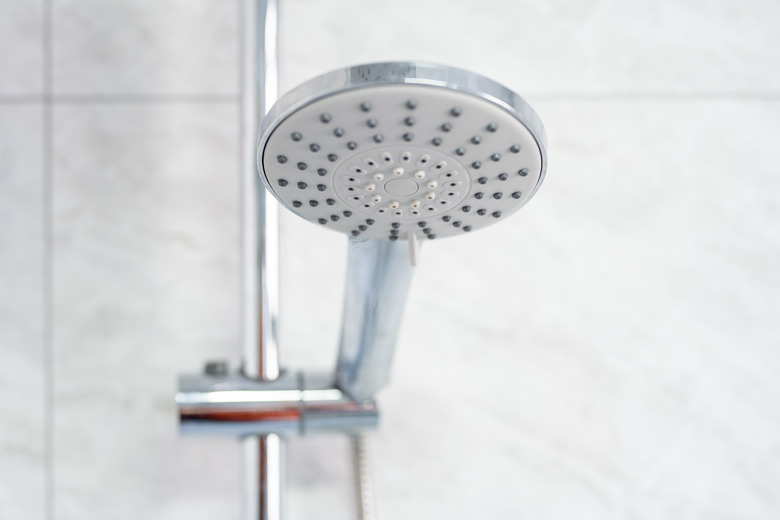Why Is My Shower Water Brown?
Brown water coming out of your shower or any other plumbing fixture in your house will probably cause alarm. While the water looks disgusting, the cause of the brown water may be simple to correct, thereby restoring clear water in your house. While brown water poses no threat to your health in the shower, you'll want to flush out the problem. Here's how.
What Turns Shower Water Brown?
What Turns Shower Water Brown?
High levels of iron is usually the cause of tap water turning brown. Iron enters the water supply when rainwater dissolves the iron or when construction moves dirt around and introduces fresh sources of iron directly to a water source. Iron is always found in tap water, but it usually is at levels that are harmless and unnoticeable. A high concentration of iron will lead to the tap water turning brown, including in your shower.
If you get your water from a well, the source of iron could be from disruptions to the soil around the well's location. Another source of iron in tap water is from rusting pipes. The water dissolves the rust on the insides of pipes, leading to an increase in iron content.
Sometimes a sudden increase in water pressure, which occurs when you shut off the water and then turn it back on rapidly, will lead to more iron coming off the insides of the pipes. The city's water pipes may be to blame for the increase in iron, but you must contact the city to confirm it as the source.
Construction or repairs done on a municipal line could also be to blame for brown water. Other possible culprits may include a change in the flow of water or the use of a nearby fire hydrant. Checking in with your neighbors to find out if they too have a brown water problem could help you determine whether the issue is in your own plumbing system.
Is Brown Water Safe to Bathe In?
Is Brown Water Safe to Bathe In?
Brown water is generally considered safe to bathe in but is a nuisance you'll want to address. An increased amount of iron in your water can stain clothing or bath towels, so washing your clothes before the water clears up can lead to more problems. Iron will also stain toilets, bathtubs and showers, meaning that cutting your shower short may save you some scrubbing later.
While iron is essential to your survival as it facilitates the transportation of oxygen in your bloodstream, it's not advised that you consume large quantities of water that contain a high concentration of iron. Drinking water with high levels of iron can, over time, affect your blood's iron balance and lead to severe health risks.
How to Get Rid of Brown Water in the Shower
How to Get Rid of Brown Water in the Shower
Running the cold water in your house for 20 minutes or more will clear out rust if the source is your pipes or well. If a nearby hydrant is being flushed, you may observe that your water is brown or reddish in color. This is because hydrant flushing can disturb iron sediments in the local water pipes. In this case, as well, you can simply run the water to clear your lines. If flushing the system in your house does not work and the city's pipes are not the source, you will need to install a filter or water softener in your plumbing system to get rid of the extra iron. You may also want to consult with a plumber to determine if any pipes need replacing.
